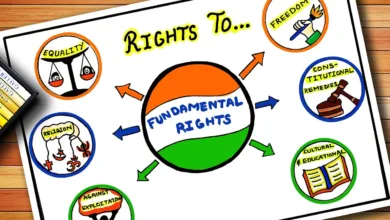Understand the Divorce Rules After Court Marriage in India

Court marriages in India have become a viable option for couples seeking to formalize their commitment without familial approvals. This legal union, granted by the court, offers both legitimacy and legal rights to couples, regardless of societal norms or traditional rituals.
However, navigating the path from courtship to a court marriage isn’t a guarantee of a smooth journey ahead. Often, conflicts arise within these unions, leading couples to consider divorce. But what are the rules governing divorce after a court marriage?
One crucial aspect to note is that neither partner can file for divorce immediately after a court marriage. The law stipulates a mandatory waiting period of one year. This provision aims to discourage hasty decisions and offers a buffer for couples to reassess their relationship before ending the marriage.
However, exceptions exist within this rule. If the court perceives potential harm or adverse circumstances for either party, it reserves the right to grant permission for separation before the stipulated year. Conversely, if investigations reveal no compelling reasons for an immediate divorce, the court upholds the one-year waiting period.
This cautious approach underlines the gravity with which the court views the dissolution of a marriage, especially one solemnized under its jurisdiction. Despite the absence of traditional ceremonies in court marriages, the legal system meticulously evaluates the dynamics and potential outcomes, emphasizing the significance of such unions.

Can a court marriage be done with a foreign woman also?
Moreover, court marriages are not bound by nationality. The court extends its provisions to facilitate marriages between Indian citizens and foreign nationals, provided all necessary visas and legal formalities for residency in India are in place. The court’s stance on marriage transcends religious, linguistic, or racial boundaries, emphasizing equality and inclusivity in the marriage institution.
In essence, while court marriages offer a streamlined process for couples to formalize their union, the legal system remains stringent about the dissolution of such marriages. It emphasizes prudence, ensuring that decisions regarding divorce are not impulsive but well-considered.
The simplicity of court marriages doesn’t diminish the gravity of the institution, highlighting the court’s responsibility in safeguarding the sanctity of marriage, irrespective of its unconventional beginnings.
| Daily current affairs Updates | Click Here |
| Law Notes Free Channel | Click Here |



